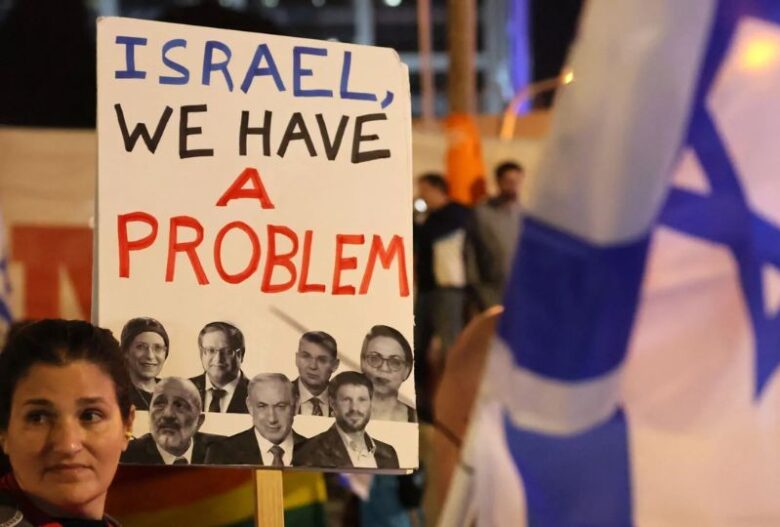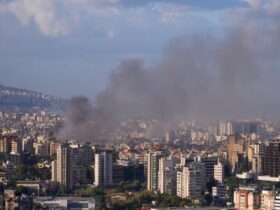The protests followed the discovery of six deceased hostages last week, which prompted an apology from Prime Minister Benjamin Netanyahu.
It was gathered many of the protesters had been arrested by the police.
Former hostage Danielle Aloni criticised Netanyahu’s response, stating, “Mr. Prime Minister, a few days ago you stood before the families of the abductees and said ‘sorry that we were not able to bring them back alive,’ but what kind of forgiveness is that if you do not intend to change your ways? We do not forgive!”
Hamas is believed to still be holding more than 100 hostages, with Israeli authorities estimating that about a third of them are dead. The militant group has accused Israel of stalling cease-fire negotiations by introducing new demands.
Former Israel Security Agency chief Einav refuted Netanyahu’s claims about the significance of the Philadelphi corridor, a strip along Gaza’s border with Egypt.
Einav argued, “The Philadelphi corridor is not an oxygen pipe for Hamas; it is an oxygen pipe for you and the coalition, and you are draining all the oxygen from the abductees, sentencing them to death.”
Netanyahu insists on maintaining Israeli control of the corridor, alleging it is used by Hamas to smuggle weapons. Both Egypt and Hamas deny these claims.
The ongoing conflict, which began on October 7 when Hamas and other Palestinian militant groups launched an attack on Israel, has deeply divided the country and left it in mourning.
The initial attack resulted in the deaths of approximately 1,200 people, mostly civilians. In retaliation, Israel initiated a military offensive on Gaza, which has led to widespread devastation, trauma, and daily funerals for residents in the enclave.
Palestinian news agency Wafa reports that over 40,900 Palestinians have been killed in the conflict, which has also affected other regions including the West Bank, the border with Lebanon, and the Red Sea.









Got a Question?
Find us on Socials or Contact us and we’ll get back to you as soon as possible.